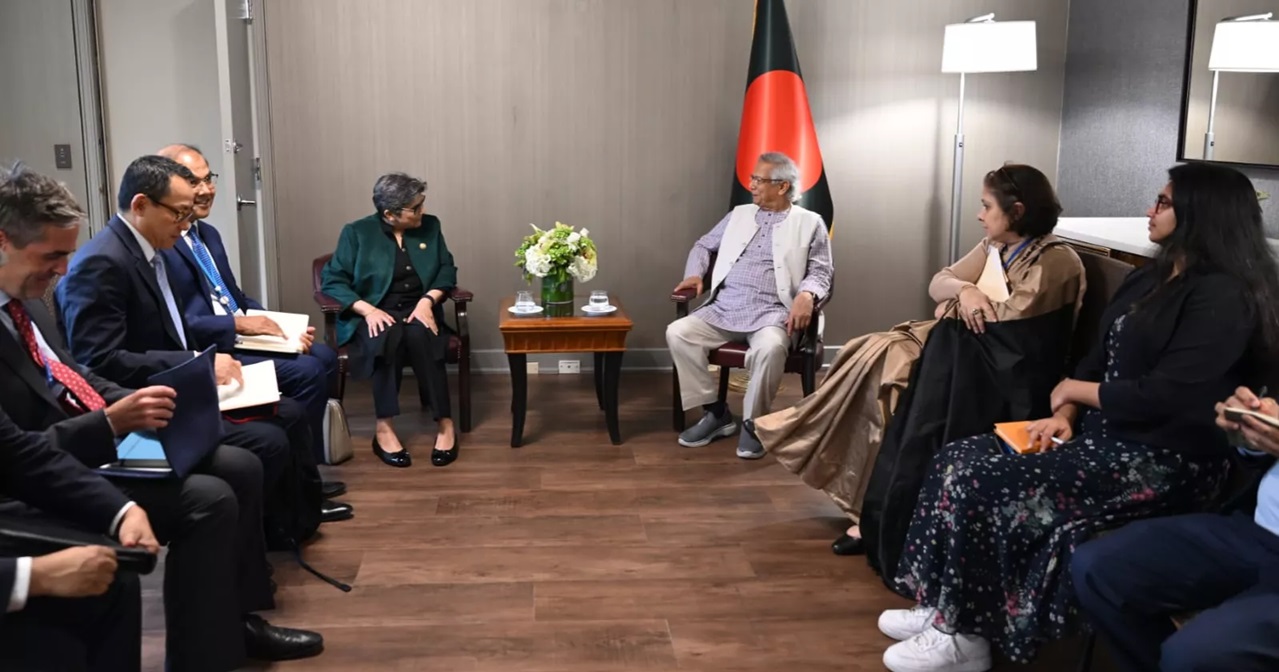UN to support assessment on Bangladesh's LDC graduation readiness: Rabab Fatima


The United Nations (UN) has said it will support an 'independent readiness assessment' for Bangladesh's graduation from Least Developed Country (LDC) status, following a formal request from the country’s interim government.
"I have reaffirmed our full commitment to supporting Bangladesh in ensuring a smooth and sustainable graduation from the LDC category," said United Nations Under-Secretary-General Rabab Fatima on Monday, announcing that her office will support the independent readiness assessment.
She commended Bangladesh’s steadfast support to UNOHRLLS. "I am honoured to meet Chief Adviser Prof Yunus."
Fatima, who also serves as the UN High Representative for the Least Developed Countries, Landlocked Developing Countries, and Small Island Developing States, met the Chief Adviser at his hotel in New York on Monday (US time).
SDGs Affairs Principal Coordinator Lamiya Morshed, Foreign Secretary Asad Alam Siam, and Bangladesh’s Permanent Representative to the UN, Ambassador Salahuddin Noman Chowdhury were present at the meeting.
The readiness assessment is expected to begin within a month and be completed by mid-January, Chief Adviser’s Press Secretary Shafiqul Alam told UNB, adding that it will help make an informed decision.
He said it will be conducted jointly by an international consultant and a Bangladeshi expert to ensure a comprehensive and balanced evaluation.
The assessment will involve extensive consultations with key stakeholders, including government officials, business chambers, development experts, civil society leaders, donors, financial institutions, and political representatives, to determine whether Bangladesh is adequately prepared for the transition.
Chief Adviser Prof Yunus welcomed the initiative, emphasising the need for empirical evidence before proceeding with the graduation.
“It has become an emotional issue,” Prof Yunus said, highlighting the importance of objective data in informing policy decisions.
In response, Fatima noted that the UN's most recent economic data on Bangladesh is over two years old.
"A lot has changed since then," she said, underscoring the urgency of reassessing the country’s current economic landscape and for making an informed decision.
Prof Yunus also expressed concern over the future of Bangladesh’s pharmaceutical industry, which has significantly benefited from trade preferences tied to its LDC status.
He observed that graduation could put the sector at risk if adequate transition measures are not in place.
Fatima, the highest ranked Bangladesh origin UN official who has been serving as Under Secretary General since 2022, shared her experience working within the UN.
The Chief Adviser has shown great interest and wanted to know how Dhaka can explore career opportunities for the Bangladeshi civil servants to work in various UN bodies, further strengthening the country’s engagement with the international system.
